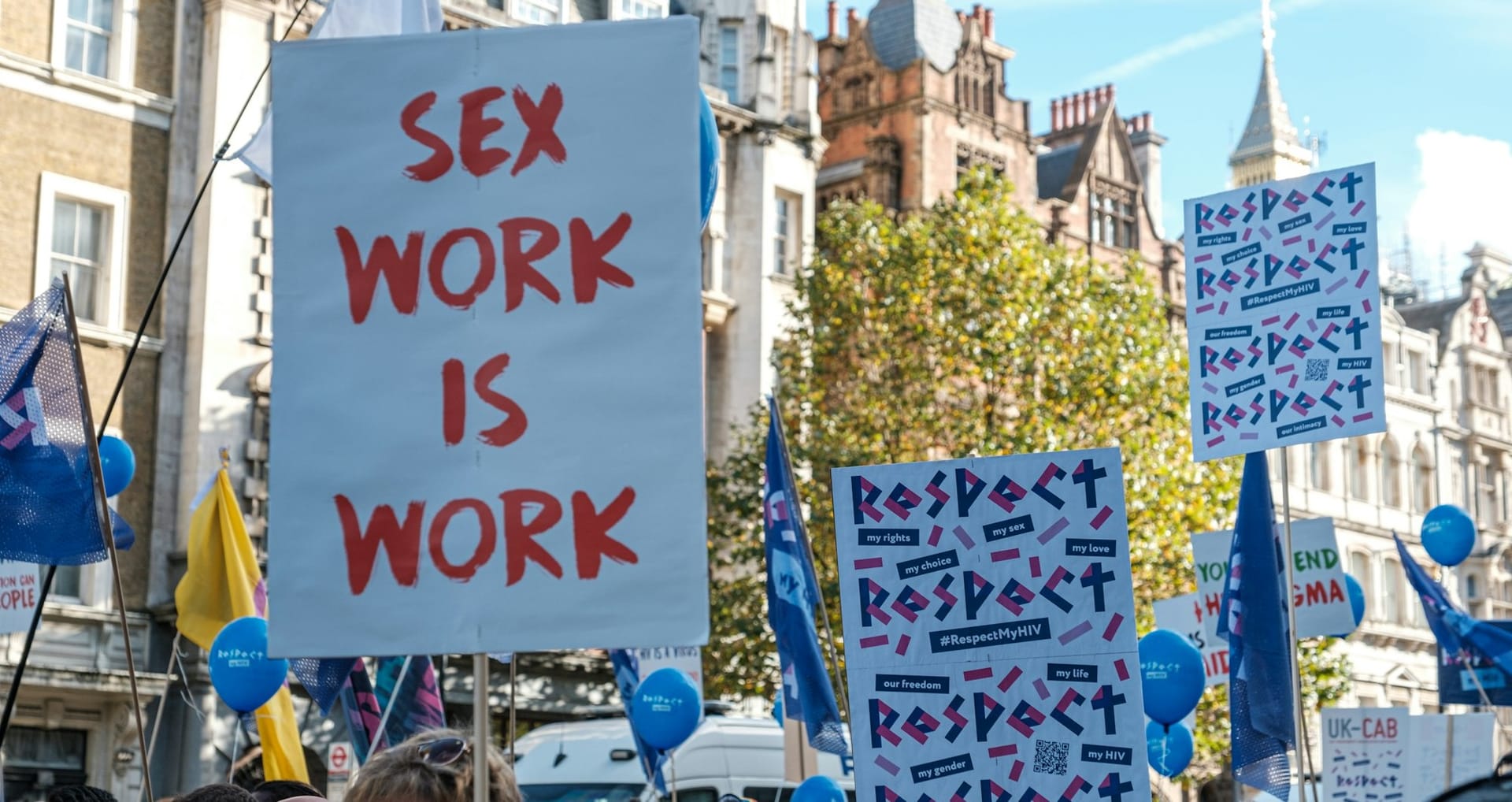The sex work industry remains highly controversial and taboo. Bringing together concerns about child safety, human trafficking, morality, and public health makes it profoundly difficult to address the existence and legal structure of one of the world's oldest trades. To navigate this complex legislative framework and the ongoing issues faced by sex workers, former and current sex workers have established numerous advocacy groups in the UK to campaign for the full decriminalisation and destigmatization of the sex industry. They argue that in order to improve public health, human rights and safety, the government must decriminalise sex work.
Rights-Based and Decriminalisation Advocacy Groups
The National Ugly Mule (NUM). A London based organisation founded in 2009 as a community group for sex workers, it is now transformed into a formidable formal organisation that advocates for the decriminalisation of sex work. They believe that criminalising sex work increases danger and creates a ripe environment for sex trafficking rings and pimping. They also provide:
Support to sex workers: they run a fund to assist sex workers in crisis, which is used to provide safe sex tools such as condoms and facilitate accessibility to health centers for STI testing and treatment.
Community Building: Just as any industry fosters a sense of community, NUM organises events and workshops for sex workers in the UK. They also conduct and promote researchers by and for sex workers to influence policy.
English Collective of Prostitutes (ECP) Born from the 1975 sex workers’ strikes that took place in the UK and France as part of an international movement fighting for the recognition of sex workers’ rights. The ECP is a legacy grassroots campaign that operates nationally but is based in London. Similar to NUM, they focus on campaigning and challenging laws, and providing legal advice and Support to sex workers over the phone.They were heavily involved in campaigns that led to the legal recognising of rape of a sex worker as a crime.
Scot-Pep. Scot-Pep is Scotland's main sex worker-led organisation advocating for the safety and rights of sex workers since 2000. Similar to the ECP and Num, they lead the “decrim Scotland campaign” which seeks to to advocate for the decriminalisation of sex work. They provide legal advice and support to sex workers and actively engage with the Scottish parliament to push for policies that improve the lives of sex workers in Scotland.
Harm Reduction and Support Services
There are other, smaller organisations that aim to reduce immediate harms in the industry by providing practical, everyday support to sex workers through peer and digital aid , and well being services. These organisations are often government funded or raise money to charity. Popular ones include:
The Umbrella Lane. A Glasgow based organisation established in 2016 by sex workers, originally as a charity project of SCOT-PEP before becoming independent. Their primary focus is on marginalised groups within sex work.
The Basis Project (run by the charity Basis Yorkshire). A prominent project in Yorkshire that is known for providing support to sex workers for decades. They provide in-depth, one-to-one support for sex workers, assisting with issues related to housing, debt, mental health, and exiting the industry if desired. Specialising in supporting migrant sex workers and victims of sex trafficking. They operate in Leeds, Bradford, and Wakefield in West Yorkshire.
MASH (Manchester Action on Street Health) operating in Manchester for over 30 years. MASH is primarily known for its work with street-based sex workers. They run a dedicated outreach van that meets women on the streets to provide hot drinks, condoms, safety advice, and health checks. They also operate a drop-in centre, a safe space offering advice, support, and access to other services like drug and alcohol support.
The Abolitionist Perspective: Abolitionist & Exit-Focused Organisations
These groups argue that prostitution is a form of violence against women and aim to "abolish" the sex trade. They support criminalising buyers but not seller, and focus on helping people to exit sex work.
These groups either believe that prostitution is a result of systemic poverty and gender inequality, and they heavily focus on providing safe exit from the industry. These include organisations such as:
Beyond the Streets: Founded in 1998, it is a national charity that works through local partners in cities like London, Bristol, Hull and Southampton..
Justice and Care: With teams across the UK, they seek and support victims of sex trafficking and exploitation. Through their team of Specialist "Victim Navigators", they collaborate with police to identify potential victims of trafficking, and provide post-care.
A Shared Goal for Safety?
Most organisations agree that sex workers susceptible to terrible working conditions are often treated like second-class citizens, which further increases the dangers they face. Although they may differ in their overall objective, many agree that decriminalising sex work is shared goal that could result in safer conditions, less human trafficking and organised work. Some even argue that adapting the “Nordic mode” and recognising sex work as work may decrease demand and could positively impact the country’s GDP, as it is a billion-pound industry. Whether the goal is abolitionism or recognition, these organisations’ non-judgemental client based policy make them the best refuge for sex workers in need of help.

